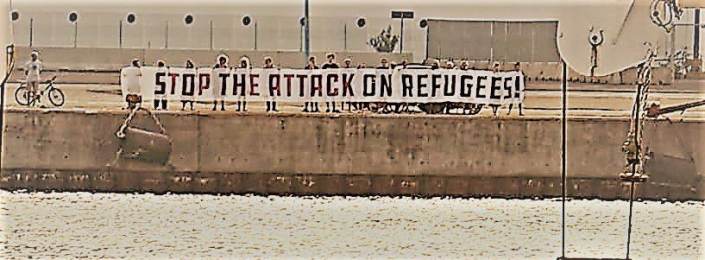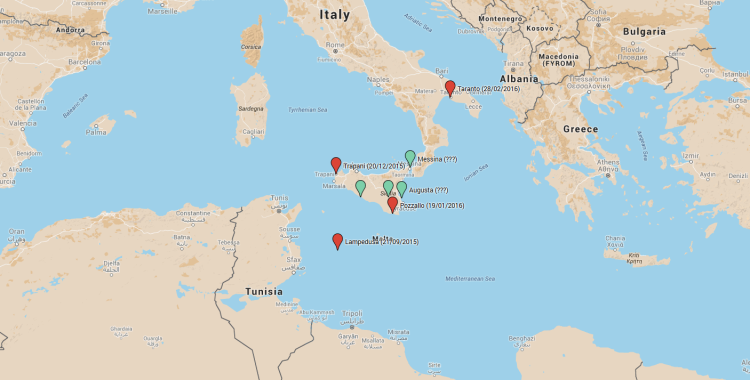The Diciotti Incident: The Shaming of a State
The Diciotti is blocked in the Eastern harbour at the port of Catania, with 177 people on board, caught in a tug of war between the Minister of the Interior, Salvini – who wants to impose the deportation to European countries as a necessary condition to a landing – and the Minister for Transport, Toninelli, who allowed the coast guard vessel to at Catania after four days of waiting, without however guaranteeing that the passengers could land.
 On the night between August 15 and 16, the ship rescued 190 migrants near Lampedusa, of whom 13 were immediately taken to the island due to serious health problems. The remaining 177 remain blocked at the port of Catania, after one week on board the Diciotti.
On the night between August 15 and 16, the ship rescued 190 migrants near Lampedusa, of whom 13 were immediately taken to the island due to serious health problems. The remaining 177 remain blocked at the port of Catania, after one week on board the Diciotti.
The Minister of the Interior’s hard line of closing the ports continues, by now extending not only the NGOs but also to Italian Coast Guard vessels, a decision that has caused considerable unease within the maritime body itself. The central military council delegate* of the Italian Coast Guard, Ciavarelli, has descrived the delay as incomprehensibile and embarassing, given that the minister Toninelli had already provided authorisation for docking in at the port.
The iron arm continues however, including with Brussels, from which news is waited regarding the passengers’ relocation to EU member states, people who have by now become objects held hostage to negotiate demands with European ministers. The Italian ministry’s new line is making people suffer, people who have already been tested by long journeys and traumatic experiences of abuse, torture and all forms of violence.
The landing that took place on July 16th provides a good example: 167 people who landed are still in the Hotspot, and we do not forget that they include a dozen of accompanied minors and two unaccompanied minors. For now only the French and German delegations have arrived at the Pozzallo Hotspot to hold interviews, and an initial group of 47 people left in the past few days for France. The answers to the appeal are still lacking from Malta, Spain and Portugal. The criteria applied in the interviews is unclear and the questions made of the migrants – all Somalian and Eritrean – seem to be concerned with the reasons that pushed them to make the journey.
This newly-adopted practice is showing all of the inadequacies of the (non)-management of the landings and again demonstrates the instrumentalisation of immigration for political ends. In Italy this means a bombardment of populist and xenophobic propaganda in which the victims are always the most vulnerable.
Yet for all this, there are voices of protest at both a local and national level. Thanks to the coordination of the Lampedusa Forum, a banner has been raised at the island’s port declaring “Lampedusa, Open Port” and a collection of signatures has been adhered to by more than 3,000 signatories.
In Catania an ongoing demonstration has been organised since the morning of August 21st, in which a range of associations and individuals have taken part in order to emphasise their refusal of the political instrumentalisation of hundreds of human lives, reduced to numbers to be thrown back and forth between Libya and the sea. The demonstration loudly demands that the port of Catania remains open and that those on board the Diciotti are allowed to land, because no man or woman is illegal.
On the afternoon of August 21st a large banner was raised which stated “Stop the Attack on Refugees” (in English), along the quay facing the Diciotti.
Beatrice Mariottini
Borderline Sicilia
* Central military council = COCER (il consiglio centrale di rappresentanza militare)
Project “OpenEurope” – Oxfam Italia, Diaconia Valdese, Borderline Sicilia Onlus
Translation by Richard Braude




